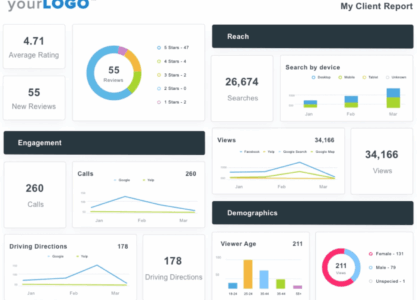The Importance of SEO Optimization and Website Analysis
Search Engine Optimization (SEO) is crucial for any website looking to increase its online visibility and attract more organic traffic. One essential aspect of SEO is website analysis, which involves evaluating various elements of a site to identify areas for improvement and enhance its performance in search engine results.
Key Benefits of SEO Optimization:
- Improved Search Engine Rankings: By optimising your website for relevant keywords and ensuring proper technical setup, you can boost your site’s ranking on search engine results pages.
- Increased Organic Traffic: A well-optimised site is more likely to attract organic traffic from search engines, leading to higher visibility and potential conversions.
- Enhanced User Experience: SEO practices such as improving site speed, mobile responsiveness, and user-friendly navigation can enhance the overall user experience on your website.
- Higher Conversion Rates: When your website is easily discoverable in search results and provides valuable content, it can lead to higher conversion rates and increased sales or leads.
The Role of Website Analysis in SEO:
Website analysis involves a comprehensive review of various factors that impact a site’s performance in search engines. This includes assessing on-page elements such as meta tags, content quality, internal linking structure, and off-page factors like backlink profile and social signals.
Through detailed website analysis, you can identify issues that may be hindering your site’s SEO performance and develop a strategy to address them. Regular monitoring and analysis are essential to track progress, make informed decisions, and stay ahead of competitors in the ever-evolving digital landscape.
In Conclusion
SEO optimization and website analysis go hand in hand when it comes to improving your online presence and driving organic traffic to your site. By implementing best practices in SEO and regularly analysing your website’s performance, you can achieve better visibility, increased traffic, and ultimately, business growth in the competitive online environment.
Top 6 Essential Tips for Effective SEO Optimisation and Website Analysis
- Perform keyword research to identify relevant keywords for your website.
- Analyse your website’s performance using tools like Google Analytics and Search Console.
- Check for broken links and fix them to improve user experience and SEO.
- Optimise meta tags, headings, and content with relevant keywords.
- Ensure your website is mobile-friendly for better SEO rankings.
- Monitor your competitors’ websites to identify opportunities for improvement.
Perform keyword research to identify relevant keywords for your website.
Performing keyword research is a crucial step in SEO optimization website analysis. By identifying relevant keywords that align with your content and target audience’s search queries, you can improve your website’s visibility in search engine results. Understanding which keywords are most searched for and strategically incorporating them into your content can help attract organic traffic and enhance your site’s overall performance. Effective keyword research lays the foundation for a successful SEO strategy and ensures that your website is optimised to reach the right audience online.
Analyse your website’s performance using tools like Google Analytics and Search Console.
To enhance your SEO optimization efforts through website analysis, it is essential to utilise tools such as Google Analytics and Search Console. By leveraging these tools, you can gain valuable insights into your website’s performance, including traffic sources, user behaviour, keyword rankings, and site errors. This data allows you to identify areas for improvement, track the effectiveness of your SEO strategies, and make informed decisions to enhance your site’s visibility and user experience. Regularly analysing your website’s performance using these tools is key to maintaining a strong online presence and maximising the impact of your SEO efforts.
Check for broken links and fix them to improve user experience and SEO.
Checking for broken links on your website is a crucial step in SEO optimization and website analysis. Broken links not only create a poor user experience by leading visitors to dead ends but also negatively impact your site’s SEO performance. By identifying and fixing broken links, you can ensure that users can navigate your site smoothly, leading to improved user satisfaction and potentially higher search engine rankings. Keeping your website free of broken links demonstrates professionalism and reliability, ultimately contributing to a positive online presence.
Optimise meta tags, headings, and content with relevant keywords.
To enhance SEO performance through website analysis, it is crucial to optimise meta tags, headings, and content with relevant keywords. By strategically incorporating keywords that align with your target audience’s search queries, you can improve your site’s visibility in search engine results. Meta tags provide search engines with essential information about your web pages, while well-structured headings help both users and search engines understand the content hierarchy. Ensuring that your content is rich in relevant keywords not only boosts SEO but also enhances user experience by delivering valuable and informative content. By focusing on these key elements during website analysis, you can significantly impact your site’s ranking and organic traffic.
Ensure your website is mobile-friendly for better SEO rankings.
To improve your SEO rankings, it is crucial to ensure that your website is mobile-friendly. With the increasing number of users accessing the internet via mobile devices, search engines give preference to mobile-responsive sites in their rankings. By optimising your website for mobile devices, you not only enhance user experience but also signal to search engines that your site is accessible and user-friendly across different platforms. This can lead to higher visibility in search results and improved SEO performance overall.
Monitor your competitors’ websites to identify opportunities for improvement.
Monitoring your competitors’ websites is a valuable tip in SEO optimization and website analysis. By keeping an eye on what strategies and tactics your competitors are implementing, you can identify opportunities for improvement on your own site. Analysing their keywords, content quality, backlink profiles, and overall user experience can provide insights into areas where you can enhance your own SEO efforts and stay ahead in the competitive digital landscape. Continuous monitoring of your competitors allows you to adapt your strategies effectively and maintain a strong online presence.



